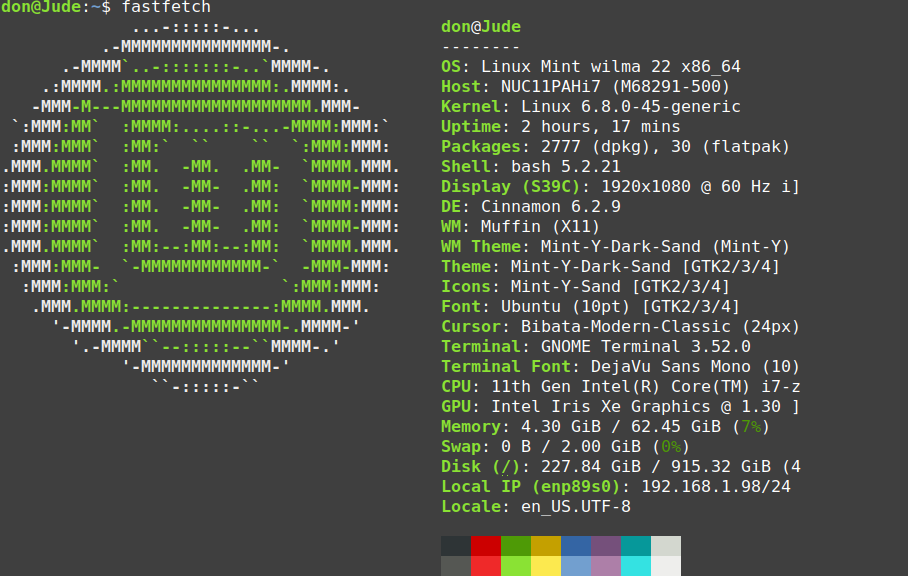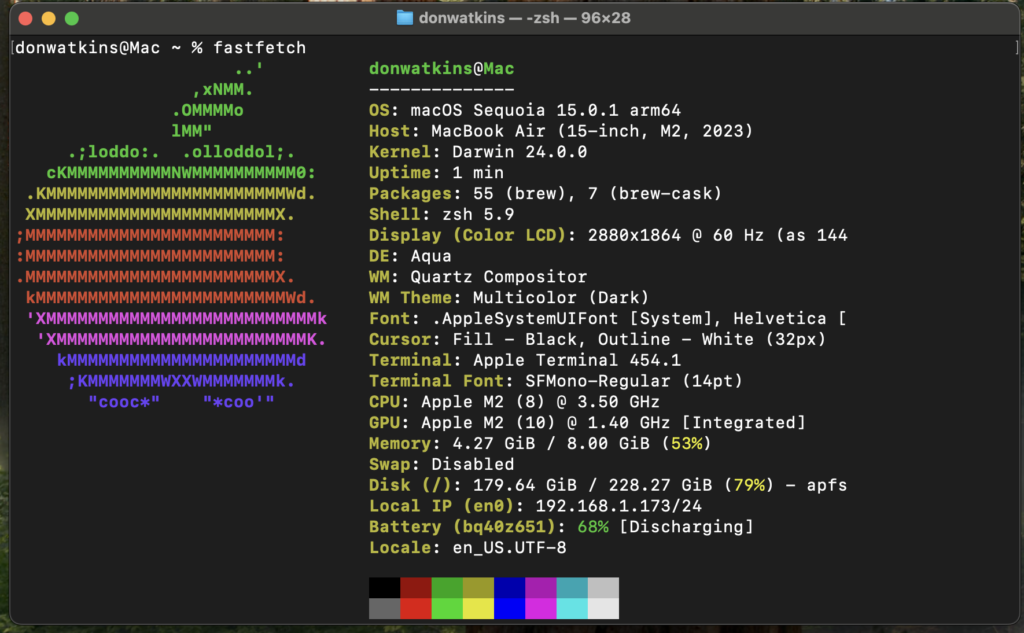
Fastfetch: system information tool
Recently, I wrote about Neofetch, which is a tool that I have used in the past on Linux systems I owned. It was an easy way to provide a good snapshot of the distribution I was running and some other pertinent information about my computing environment. One of my readers replied to let me know that the project was no longer being maintained. It was last updated in August 2020. The commenter suggested that I check out Fastfetch. I thanked the reader and followed the link he provided to the Github repository for Fastfetch.
The project maintains that it is “An actively maintained, feature-rich and performance-oriented, neofetch-like system information tool.” It is easy to install and provides much of the same information that Neofetch provided. However, it does supply your IP address, but the project maintains that it presents no privacy risk. The installation for Fedora and RPM-based distributions is familiar when entering the following command:
$ sudo dnf install fastfetchIf you are using an Ubuntu-based distribution like my Linux Mint daily driver, the installation requires downloading the appropriate .deb file. Once the package was installed on my system, I decided to try it.

Fastfetch can be easily installed on a MacOS with Homebrew. I decided to try it on my MacBook.
% brew install fastfetch
Fastfetch is written in C with 132 contributors. It is open-source and has an MIT license. In addition to Linux and MacOS systems, you can install Fastfetch on Windows with Chocolatey. The project states that Fastfetch is faster than Neofetch, and it is actively maintained. Fastfetch has more features than its predecessor, and if you want to see them all, enter the following command:
$ fastfetch -hThis command launches the Fastfetch help section, which includes a complete command and configuration options list. The project wiki provides more information and examples of what Fastfetch looks like on other operating systems.